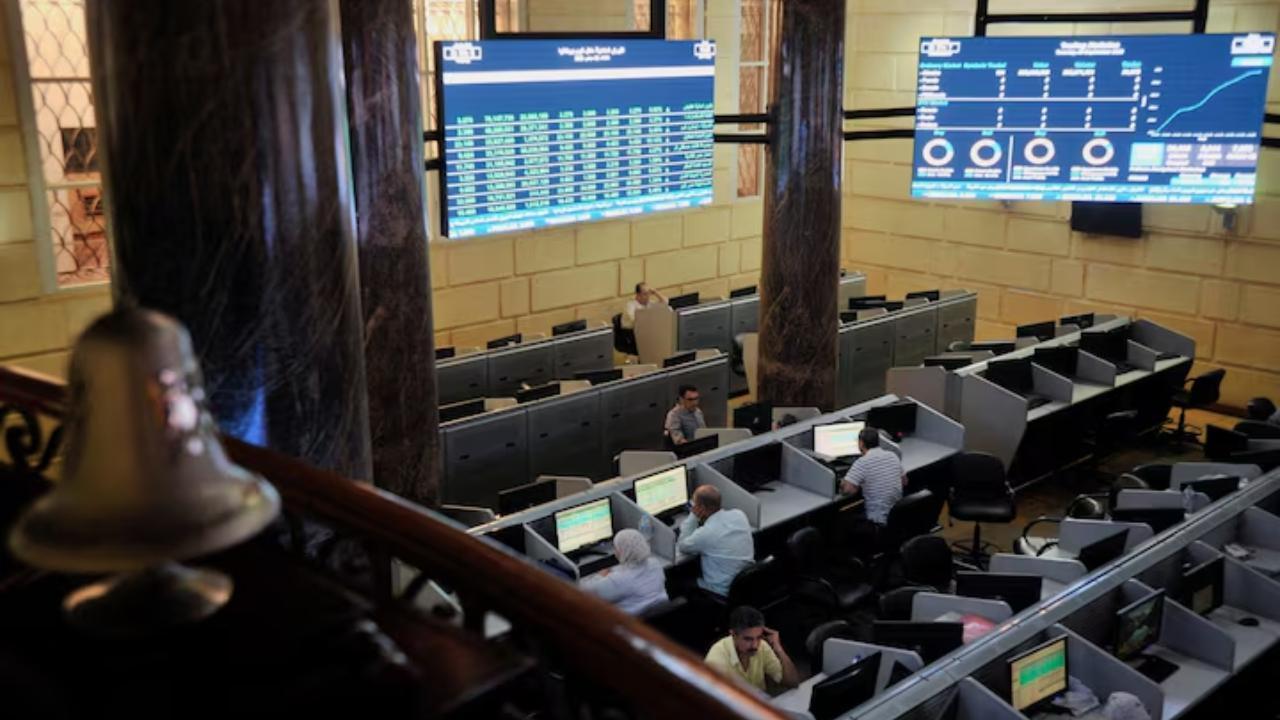
Post by : Monika
Photo: Reuters
On Sunday, stock markets across the Gulf region faced a difficult day. Most of them ended lower because oil prices dropped. Oil is the backbone of Gulf economies, and any fall in its price quickly affects companies, banks, and even governments in the region.
The decline was linked to two big factors: a weak jobs report from the United States and news that major oil-producing countries (called OPEC+) will soon increase their oil supply. Together, these events created pressure on oil prices, which then dragged down stock markets in Saudi Arabia, Oman, Kuwait, and Egypt.
Why Oil Prices Dropped
a. Weak U.S. Jobs Data
The U.S. reported its highest unemployment rate in four years. When fewer people have jobs, consumer spending slows down. Factories, transport companies, and businesses use less fuel and energy. Investors saw this as a sign that global oil demand could fall, which pushed prices down.
b. OPEC+ Supply Increase
OPEC+ (a group of oil-exporting countries, including Saudi Arabia and Russia) decided to raise production by 137,000 barrels per day starting in October. More oil in the market usually lowers prices, especially when demand looks weak.
Qatar – A Small Gain
Not all markets dropped. Qatar’s stock index actually rose 0.3%. The main reason was a 1.6% gain in Qatar Islamic Bank, which helped offset other losses.
This small rise shows that some markets can resist oil price shocks if strong banking or other sectors provide balance.
Egypt – Heavy Pressure
In Egypt, the blue-chip stock index EGX30 fell 0.9%. The decline was driven by a 2% drop in Commercial International Bank, the country’s largest listed bank.
Egypt’s market has already been under stress from inflation and rising interest rates, so the oil news added another layer of worry for investors.
Overall, the regional trend was downward, with Bahrain being one of the few exceptions.
So, when oil prices fall, it affects almost every part of the economy—from government spending to company profits.
The Role of OPEC+
OPEC+ has a huge influence on global oil prices. For years, the group has managed supply to keep prices stable. But this time, the decision to raise production came at a tricky moment.
With the U.S. economy showing signs of slowing down, many analysts believe that OPEC+ output hikes may push prices even lower in the short term.
Global Market Links
Imagine a family that owns a mango farm. If mangoes sell at a high price, the family earns a lot, hires workers, and builds a new house. But if mango prices fall because fewer people buy them or because too many mangoes are in the market, the family earns less. They may cut costs, stop hiring workers, or delay building plans.Gulf countries are like this family, but with oil instead of mangoes. When oil prices fall, their income drops, and it affects everyone.
Impact on Ordinary People
Market Outlook
Diversification Efforts
Country Market Result Key Reason
The Bigger Picture
The fall in Gulf stock markets is not just a local story. It reflects the wider global economy. Oil connects the Gulf with the rest of the world in a powerful way. When prices rise, Gulf economies grow strong. When prices fall, the weakness spreads quickly.The U.S. job market, OPEC+ production decisions, and investor confidence all come together to shape the future of oil—and with it, the future of Gulf markets.
The events of this week are a reminder of how closely tied the Gulf is to oil prices and global markets. A weak jobs report in the U.S. and an increase in OPEC+ supply were enough to push oil down, and with it, most Gulf markets.
Until new demand appears or production levels change, markets in the region may remain under pressure. For now, investors, governments, and citizens alike are watching oil prices carefully, knowing that their future depends on this critical resource.
Gulf stock markets drop










Qatar bombing causes friction in Trump-Netanyahu alliance over strike in Doha
The Doha bombing tested the bond between Trump and Netanyahu, raising questions over peace efforts a

Israel warns it will kill Hamas leaders next time if they escaped in Doha airstrike
Israel warns it will kill Hamas leaders if they escaped the Doha strike, raising tensions with Qatar

Alibaba Cloud Leads China’s AI Market with 36% Share
Alibaba Cloud captured over one-third of China’s AI cloud market beating rivals and investing billio

Cambodia Defends China’s Belt and Road as Economic Lifeline
Cambodia praises China’s Belt and Road projects, calling them vital for growth rejecting claims of d

Portugal Norway England shine in UEFA World Cup qualifiers
Portugal beats Hungary 3-2 Ronaldo scores Haaland shines for Norway, Kane leads England in dominant

PV Sindhu exits Hong Kong Open HS Prannoy Lakshya Sen win
PV Sindhu loses early at Hong Kong Open HS Prannoy and Lakshya Sen advance in tough battles India's